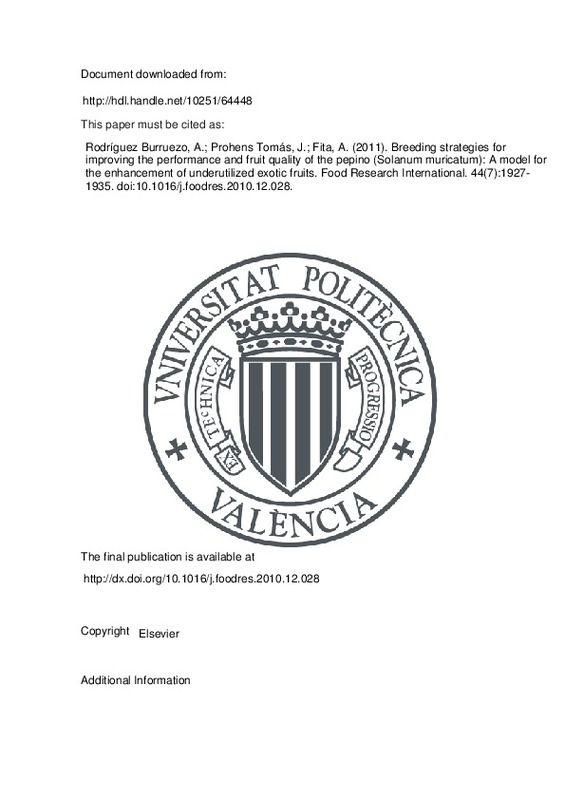JavaScript is disabled for your browser. Some features of this site may not work without it.
Buscar en RiuNet
Listar
Mi cuenta
Estadísticas
Ayuda RiuNet
Admin. UPV
Desde el lunes 3 y hasta el jueves 20 de marzo, RiuNet funcionará en modo de solo lectura a causa de su actualización a una nueva versión.
Breeding strategies for improving the performance and fruit quality of the pepino (Solanum muricatum): A model for the enhancement of underutilized exotic fruits
Mostrar el registro completo del ítem
Rodríguez Burruezo, A.; Prohens Tomás, J.; Fita, A. (2011). Breeding strategies for improving the performance and fruit quality of the pepino (Solanum muricatum): A model for the enhancement of underutilized exotic fruits. Food Research International. 44(7):1927-1935. doi:10.1016/j.foodres.2010.12.028
Por favor, use este identificador para citar o enlazar este ítem: http://hdl.handle.net/10251/64448
Ficheros en el ítem
Metadatos del ítem
| Título: | Breeding strategies for improving the performance and fruit quality of the pepino (Solanum muricatum): A model for the enhancement of underutilized exotic fruits | |
| Autor: | ||
| Entidad UPV: |
|
|
| Fecha difusión: |
|
|
| Resumen: |
The pepino (Solanum muricatum Aiton) is a neglected Andean crop that has elicited an increasing interest from exotic fruit markets. The pepino is highly diverse and, by using appropriate breeding strategies, it has been ...[+]
|
|
| Palabras clave: |
|
|
| Derechos de uso: | Reserva de todos los derechos | |
| Fuente: |
|
|
| DOI: |
|
|
| Editorial: |
|
|
| Versión del editor: | http://dx.doi.org/10.1016/j.foodres.2010.12.028 | |
| Tipo: |
|







![[Cerrado]](/themes/UPV/images/candado.png)


